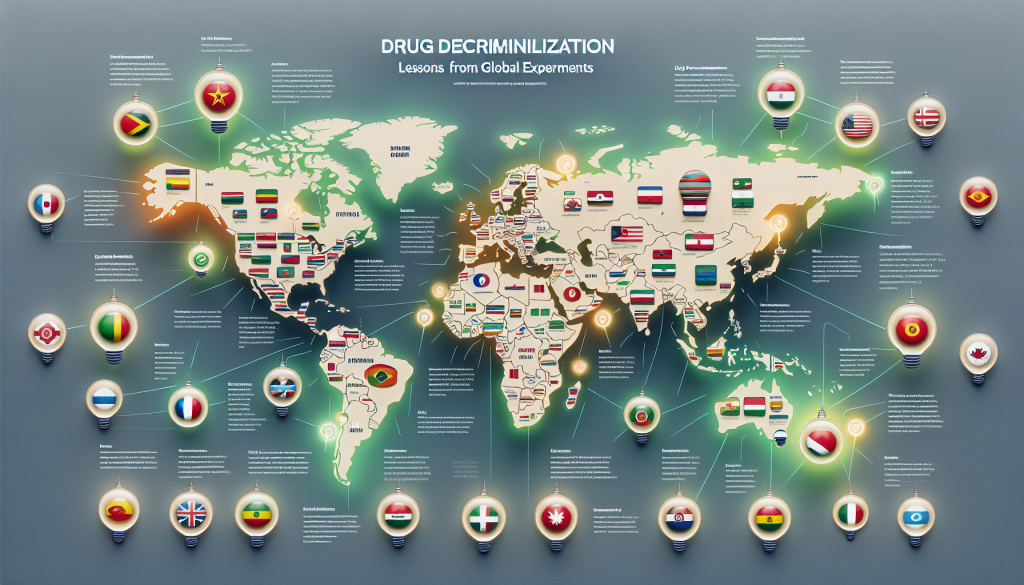
Drug Decriminalization: Lessons from Global Experiments
Drug Decriminalization: Lessons from Global Experiments
The global war on drugs has been waged for decades, with countless lives lost, and billions of dollars spent. Despite these efforts, drug use and drug-related crimes continue to be major issues in many countries. Recently, however, there has been a shift towards a new approach to drug policy – decriminalization. This involves treating drug use and possession as a public health issue rather than a criminal one. Many countries have already implemented this approach and have seen promising results. Let’s take a closer look at the lessons we can learn from these global experiments in drug decriminalization.
The Benefits of Decriminalization
Decriminalization of drugs refers to removing criminal penalties for drug possession and use, while still regulating and controlling the distribution and sale of drugs. This approach has several benefits that have been observed in countries that have implemented it.
- Reduced incarceration rates: One of the biggest advantages of decriminalization is the significant decrease in incarceration rates. In countries like Portugal, where drug use was decriminalized in 2001, the number of people in prison for drug offenses has dropped significantly. This has also freed up resources for law enforcement to focus on more serious crimes.
- Cost savings: Decriminalization can also result in cost savings for governments. Instead of spending money on arrests, trials, and incarceration, resources can be directed towards drug treatment and education programs.
- Lower drug-related deaths and infections: By treating drug use as a public health issue, decriminalization can help reduce the number of drug overdose deaths and the spread of infectious diseases, such as HIV and Hepatitis C, among drug users.
Lessons from Global Experiments
Several countries have already implemented drug decriminalization policies with positive results. The most well-known examples include Portugal, Switzerland, and the Czech Republic.
Portugal: In 2001, Portugal became the first country in the world to decriminalize the possession and use of all drugs. Since then, the country has seen a decrease in drug use and drug-related deaths, as well as an increase in treatment and rehabilitation services.
Switzerland: In Switzerland, heroin-assisted treatment (HAT) has been available since the 1990s, allowing individuals addicted to heroin to receive medical-grade heroin in a supervised setting. This approach has resulted in a decrease in overdose deaths and criminal activity among those receiving treatment.
Czech Republic: In 2010, the Czech Republic decriminalized the possession of small amounts of drugs for personal use. This has resulted in a decrease in drug-related arrests and incarceration rates, as well as an increase in drug treatment and harm reduction services.
Challenges and Limitations
While the results of drug decriminalization are promising, there are still challenges and limitations to consider.
- Stigma and discrimination: Decriminalization does not necessarily eliminate the stigma and discrimination associated with drug use. This can prevent individuals from seeking treatment and support services.
- Social and cultural factors: Drug decriminalization policies can be influenced by social and cultural factors. For example, in countries where drug use is highly criminalized, it may take time to change societal attitudes towards drug use and addiction.
Conclusion
In conclusion, the global experiments in drug decriminalization have shown promising results in reducing incarceration rates, cost savings, and improving public health outcomes. However, decriminalization alone is not a one-size-fits-all solution. It is essential to consider the unique social and cultural context of each country when implementing drug policy reform. With continued evaluation and adaptation, we can learn from these global experiments in drug decriminalization and move towards more effective and humane approaches to drug policy.
